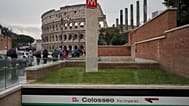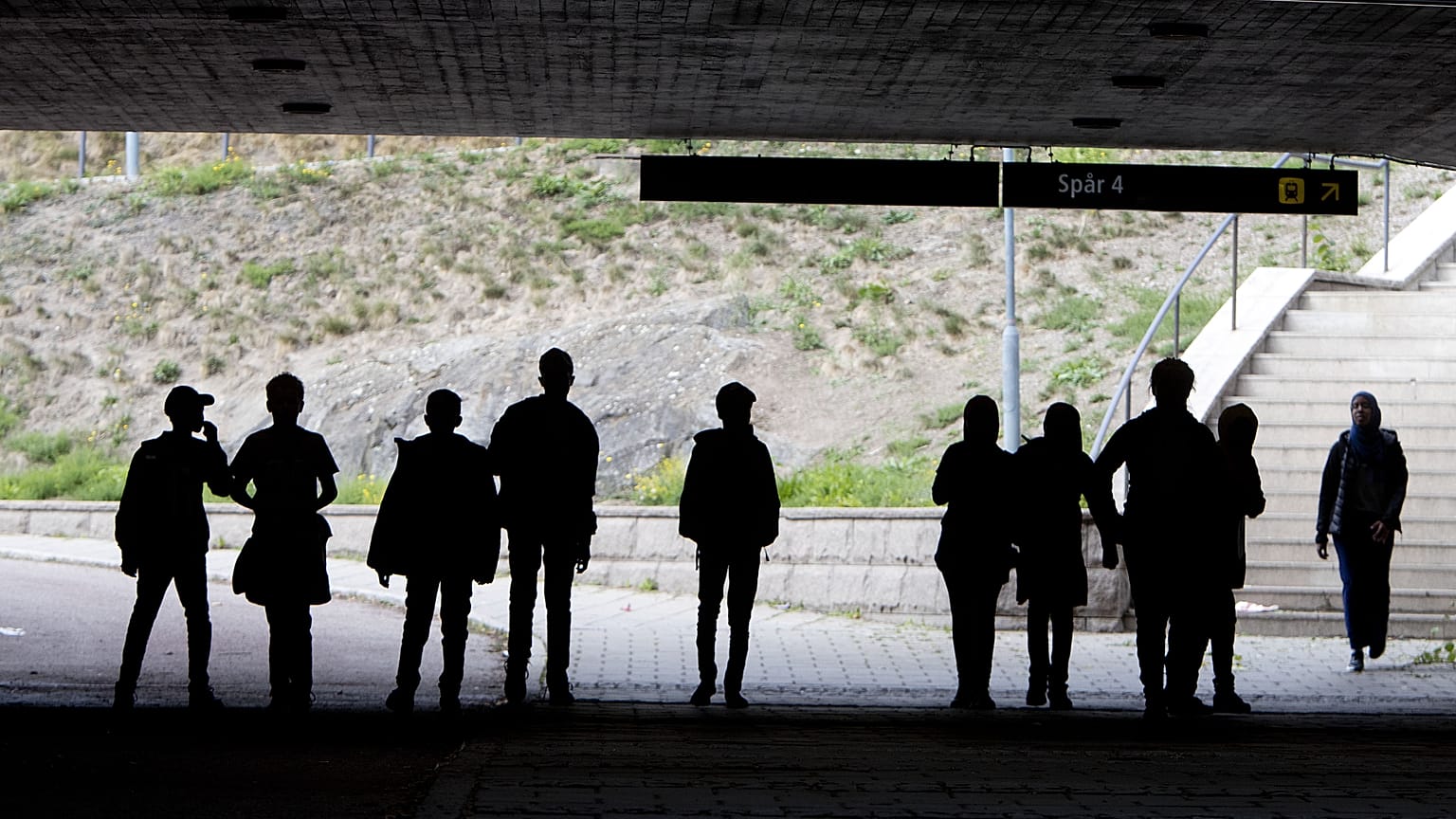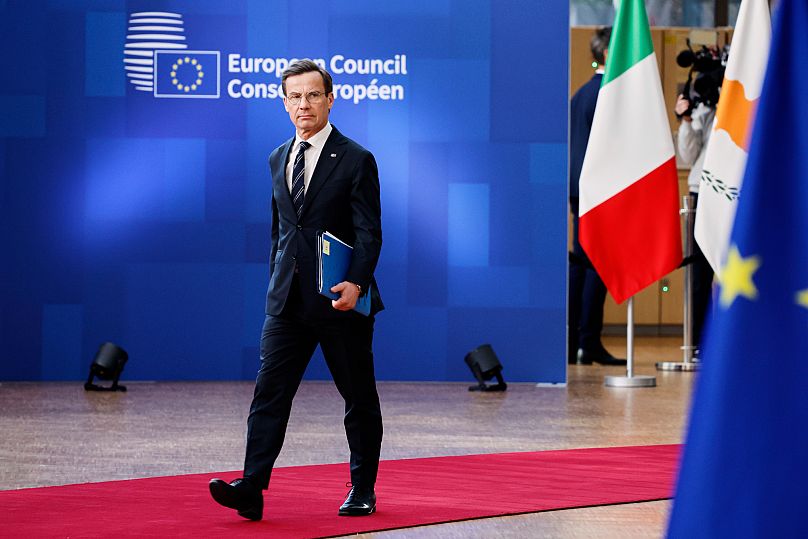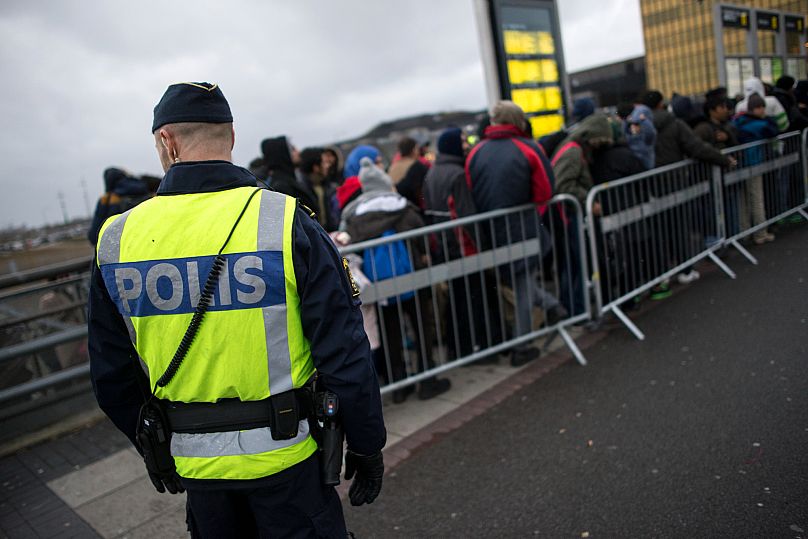In an interview with Euronews, Sweden’s PM Ulf Kristersson said integration needs to be controlled and backed upping migrant return grants from €900 to €32,000.
The Prime Minister of Sweden, Ulf Kristersson, says there is an "absolute need to get control on migration," in an interview with Euronews.
He reiterated his proposal to significantly increase the amount of money Sweden offers to migrants as a financial incentive to leave the country.
The current grant is €900 per adult. However, this initiative has had limited success so far. In 2023, only one out of 70 applications was approved, according to the Swedish Migration Agency.
To reverse this trend, a new government proposal would raise the amount to €32,000, an increase of 3,400%.
Though the concept of financial incentives for voluntary return has been in place for decades, Kristersson said he is now taking inspiration from Denmark, which has set a target group of 22,000 people.
"We are copying basically the Danish model and raising that sum pretty significantly to make it easier for those who realise that they would prefer to go back to their own country, they do not for different reasons feel that they find a well-functioning life in Sweden," he said.
Kristersson acknowledged that the method would not appeal to many, but highlighted the underlying issue.
"I don't think that would be a method that works for very many people, but we do have a problem with integration, and if people who have a legal right to stay in Sweden but basically do not integrate, basically do not really appreciate the Swedish way of life, then at least people would think about returning to their country of origin."
The proposal is set to take effect on 1 January 2026.
Kristersson also expressed strong support for a regulated migration policy, such as the EU’s Migration Pact, and emphasised that rejected asylum seekers should not remain in Europe.
"Right now, we have some 80% of those have a negative decision on asylum, nevertheless they stay in Europe. That is simply unacceptable in Sweden. We have managed that, I think we have now some 20% staying even though they shouldn't by those who have had the negative decision. So we absolutely need to get control of the migration."
He noted that attitudes across Europe are shifting dramatically, which may make political decisions on migration policy easier. The European Commission has recently proposed measures to make the repatriation of irregular migrants more effective.

















